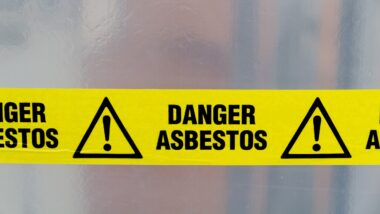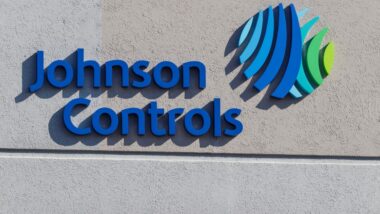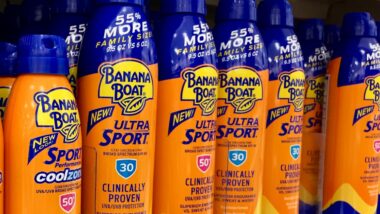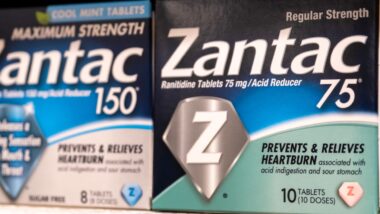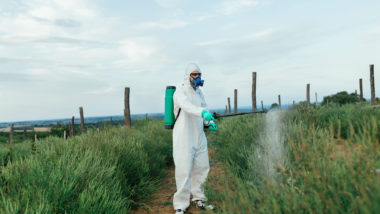Top Class Actions’s website and social media posts use affiliate links. If you make a purchase using such links, we may receive a commission, but it will not result in any additional charges to you. Please review our Affiliate Link Disclosure for more information.
Claiming certain certifications — such as “Gluten-Free,” “Non-GMO Project Verified” and more — on product labels has been a growing trend in recent years, according to a Forbes report.
Glyphosate is an herbicide most widely known by the brand name Roundup, a weedkiller developed by Monsanto and owned by Bayer. Scientific studies on glyphosate have shown the chemical to be dangerous to humans, the environment and animals.
Glyphosate has been linked with colony collapse disorder — the declining bee populations — and Roundup cancer lawsuits have been filed across the country by consumers who claim their cancer is a direct result of their use of the weedkiller for years.
Companies that don’t use the controversial chemical have begun adding “glyphosate-free” labels to products, allowing consumers to make more informed choices about what they buy.
The International Agency for Research on Cancer (the World Health Organization’s cancer agency) in 2015 classified glyphosate as a “probable human carcinogen,” setting off a wave of Roundup cancer lawsuits, according to The Detox Project.
Consumers are becoming increasingly wary of the use of glyphosate as these health and environmental concerns come to light and as more Roundup cancer lawsuits are filed. In response, two organizations have begun issuing glyphosate-free labels on products to alert consumers their purchase is not contaminated by glyphosate.
Some may think foods labeled as organic would be enough to indicate a product has not been contaminated by glyphosate. However, while an organic label generally means a product was made with little use of synthetic pesticides and fertilizers, CBS News explains, this does not account for traces of glyphosate introduced by air drift from neighboring farms.
Organizations BioChecked and The Detox Project issue “glyphosate-free” labels to products that have applied for certification and been tested before being approved for the glyphosate-free designation. Both organizations are in their infancy, and only a handful of brands have so far applied for certification.
Some well-known brands may be avoiding certification because their products may have already been found to have significant glyphosate residue levels, according to FoodDive.
“Most of the time when people are coming to us, they are adamant and without question already know that they’ll qualify,” said Scott Prentice, the executive director of BioChecked.
Though glyphosate-free labels are new, they have the potential to become much more widespread as part of the trend toward transparency in consumer labeling.
There have been concerns expressed that adding more certification labels, such as glyphosate-free labels, will confuse consumers; however, Prentice said the goal is for these symbols to garner instant recognition. Ultimately, BioChecked would like to see a reduction in the number of labels on food products.
“Our goal is to get to one seal which would signify that your food has been checked for herbicides, pesticides, GMOs, and people would feel comfortable that it’s being checked,” Prentice said. “We tell most customers when they contact us that we hope to be put out of business and they don’t need us anymore.”
For now, many consumers trying to stay healthy and avoid unwittingly consuming dangerous chemicals may appreciate the additional transparency as a result of the glyphosate-free labels.
 Filing a glyphosate lawsuit
Filing a glyphosate lawsuit
So far, thousands of consumers have filed lawsuits against Monsanto (now a division of Bayer AG) over Roundup cancer. Despite the onslaught of litigation, the product has not yet been recalled. Bayer has been on a bit of a losing streak in its appeals in ongoing Roundup trials.
Although personal injury claims continue in Roundup cancer lawsuits, Monsanto agreed to resolve related false advertising claims with a $45 million class action settlement. The settlement resolves claims that Monsanto failed to warn customers that using Roundup products could result in health issues including cancer.
If you or someone you love has suffered complications from exposure to glyphosate, including cancer, you may be able to file a lawsuit and pursue compensation. Filing a lawsuit cannot take away the pain and suffering caused by glyphosate-related health issues, nor can it bring a loved one back to life, but it can at least help alleviate the financial burden incurred by medical expenses, lost wages and more.
Filing a lawsuit can be a daunting prospect, so Top Class Actions has laid the groundwork by connecting you with an experienced attorney. Consulting an attorney can help you determine if you have a claim, navigate the complexities of litigation and maximize your potential compensation.
ATTORNEY ADVERTISING
Top Class Actions is a Proud Member of the American Bar Association
LEGAL INFORMATION IS NOT LEGAL ADVICE
Top Class Actions Legal Statement
©2008 – 2024 Top Class Actions® LLC
Various Trademarks held by their respective owners
This website is not intended for viewing or usage by European Union citizens.
Get Help – It’s Free
Join a Roundup Weed Killer Cancer Class Action Lawsuit Investigation
For the most up-to-date information on this case, click here.


 Filing a glyphosate lawsuit
Filing a glyphosate lawsuit